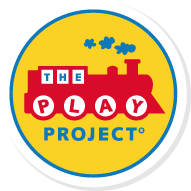By: Onna Solomon
The PLAY Project’s first semi-annual Advanced Workshop and Reunion Retreat was held in June, with wonderful presentations by Dr. Solomon and experienced PLAY Home Consultants. One of the highlights of the event was a talk by Lisa Gretchko and her son, Ben. The Gretchkos were one of the first PLAY Project families, starting the program in 2001. Ben is now in middle school and shared some of his recent bar mitzvah speech, a moving and thoughtful piece of writing that you can read on the Autism Speaks blog here.
In her talk, Lisa offers some great tips for PLAY therapists (and ALL service providers out there!) from a mother’s perspective. I want to share some of her insights here, through quotes from her talk:
“First observation: it was counter-intuitive that silent play with Ben would get him to speak! For me, the beginning of the PLAY Project was a crisis of faith. I was hopeful that it would work, and I really wanted to trust Dr. Solomon and Christy [the Home Consultant], but it defied logic (at least my logic) that silent play with Ben would get him to talk.
Plus, it’s hard to play silently with an autistic child! They don’t interact, so there’s really no “play.” And, Ben was a tough customer: if I didn’t “do” the silent play correctly, he just got up and walked away! That felt like failure and rejection—and it was hard for me to handle emotionally. So, as therapists, please know that the beginning of the PLAY Project can be an emotional roller coaster for the parents.”
Lisa’s reflection on feeling rejected, discouraged, and confused as a parent with a newly diagnosed child is a powerful reminder to educators and therapists in the field: families often feel vulnerable in the beginning and professionals have an opportunity to provide hope and encouragement at this time. I will leave you with Lisa’s thoughts on this issue:
“Second Observation: Parents are really scared, so be careful to give us bad news with some hope . . .As a therapist, Christy knew that she had to temper the truth [of Ben’s developmental delays] with something hopeful to keep us going. So, she did that. As therapists, always remember to put yourself in the shoes of the parents who have to hear that bad news, and try to deliver it with a positive spin. Frankly, Steve and I were very fragile at that point. We needed a glimmer of hope.”
We will have webcasts of some of the talks from the event soon (including Lisa and Ben’s), so stay tuned!
